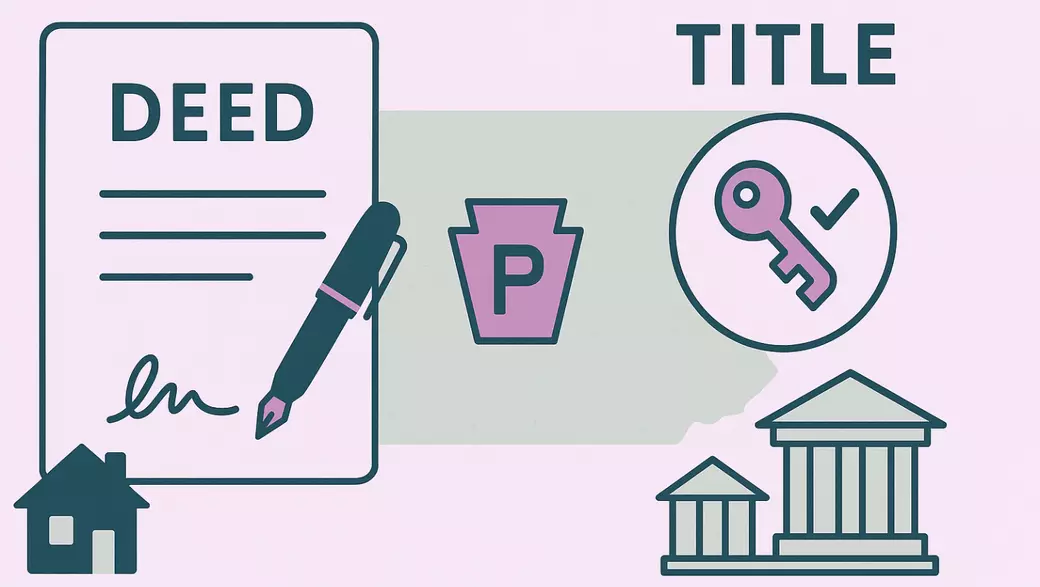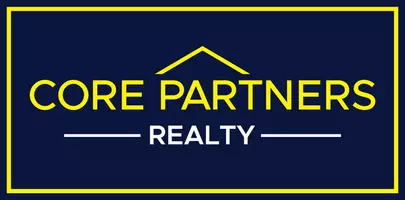Blog > Deeds vs Title: What Every PA Homebuyer Should Understand Before Closing Day
Deeds vs Title: What Every PA Homebuyer Should Understand Before Closing Day
by
Closing day feels like a finish line, but it’s really just the beginning of owning your home. Once the money moves and the papers are signed, the keys come to you. But not everything about owning a home is as straightforward as it sounds. In Pennsylvania, understanding the difference between the deed and the title isn’t just good to know—it’s essential.
What’s a Deed?
In PA, the deed is the document that officially transfers ownership of the property from the seller to the buyer. It’s signed, notarized, and recorded at the county Recorder of Deeds office. Typically, the company that oversees the closing will take care of sending the documents to the Recorder. That’s what makes it real—once it’s recorded, it’s part of the public record.
Most standard home sales in Pennsylvania use a general warranty deed, which gives buyers the highest level of protection. That means the seller guarantees that they own the property free and clear and have the legal right to sell it—and they’re also on the hook if a problem from the past pops up.
Not all deeds offer the same protection. Quitclaim deeds, for example, transfer whatever interest the seller may have, without making any promises. These are rarely used in standard transactions, but they show up in family transfers or situations where ownership is murky.
What’s a Title?
Title isn’t a document. It’s a legal concept giving you the right to own and use the property. Title is the legal relationship you now have with the property.
In Pennsylvania, when a title transfers, it triggers a realty transfer tax. This tax is typically split between buyer and seller unless negotiated otherwise. Statewide, you’re paying 1%, but some municipalities tack on local taxes, which can bump the total to 2% or more. Always have your agent check the total rate where you’re buying—Philadelphia, for example, has one of the highest in the state.
Title search: Making Sure the Past Doesn’t Haunt You
Before closing, a title company (or your real estate attorney) will run a title search. This is basically a deep dive into the property’s history. They’re looking for any “clouds” on the title: unpaid taxes, contractor liens, judgments, boundary disputes, or anything or anyone else that can stake a claim on your new home.
If they find something, it has to be fixed before closing. If you’re using a mortgage, your lender requires a clean title and won’t release the funds to purchase your home until there are no “clouds”. No exceptions.
Title insurance: Pay Once, Peace-of-Mind Forever
Here’s where it gets real: even with a good title search, surprises can show up later—like a forged signature from 20 years ago or a previously unknown heir suddenly claiming they own part of your backyard.
Lender’s title insurance is mandatory in PA if you’re financing, but it only protects the lender’s investment. If you want to protect your equity, you’ll want owner’s title insurance too. It’s a one-time cost, but it covers you as long as you own the home, and it could save you from a nightmare later.
It’s an option, but a smart recommendation to consider.
HOA or condo? Is the Home Really Yours?
In Pennsylvania, if you buy in an HOA or a condo, you’ll still receive a deed and hold title to your unit or lot—just like a traditional home. So, YES, the home is really yours. The only thing is you have additional rules to follow called the covenants, conditions, and restrictions (CC&Rs) laid out by the association.
So yes, you own it—but no, you can’t paint your front door neon green without checking first. You are legally provided time to review the CC&Rs before making a final decision about buying the home. Your agent should be sitting down and reviewing them with you so you have answers when you have questions. If you don’t want to follow the rules, don’t buy the home.
With condos, you really own your home, but you’ll also share ownership of common areas (hallways, lobbies, roofs), which is spelled out in the deed and governed by the condo association.
Co-ops? Whole Different Ball Game
Co-ops aren’t very common in Pennsylvania, but they do exist. Instead of holding a deed, you own shares in the corporation that owns the entire building, and your right to live in your unit comes through a proprietary lease. No deed. No traditional title. It’s a completely different legal setup, and it’s not something you want to navigate without a knowledgeable attorney.
Bottom line?
Whether you’re buying your forever home or your first one, your deed and title are what make you the legal owner. In Pennsylvania, that means working with professionals who know how to spot issues before they cause problems—and making sure the documents you walk away with give you the rights you think you’re getting.
If you're unsure about anything in your deed, the title search, or how ownership is structured, don't guess. Reach out and let’s talk. I’d rather you have all the information up front than wonder about it when it’s too late. I’m happy to explain the fine print before it becomes a big deal.

